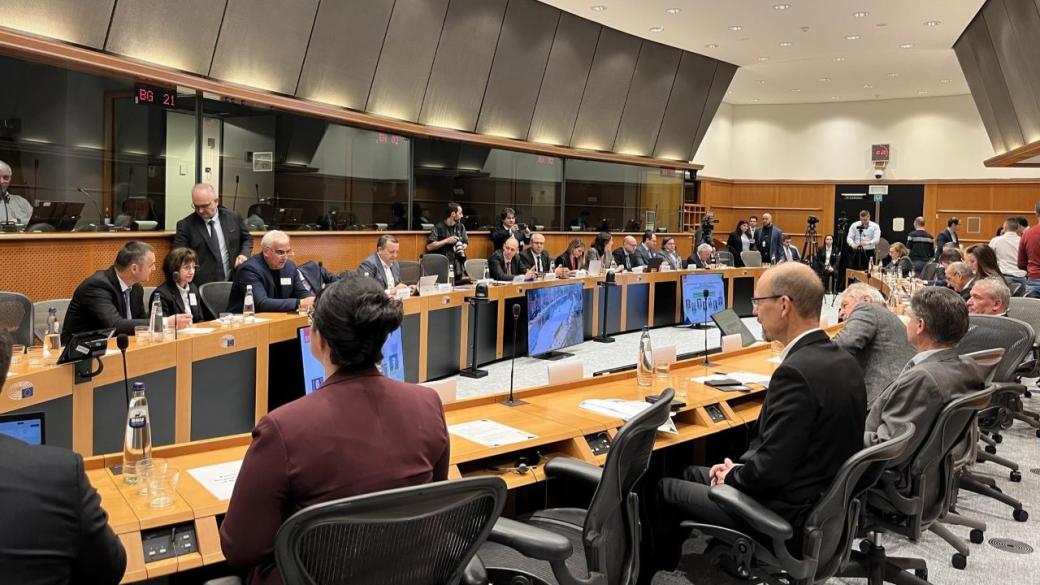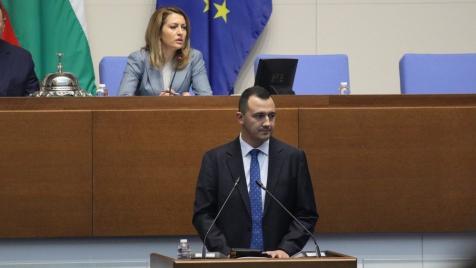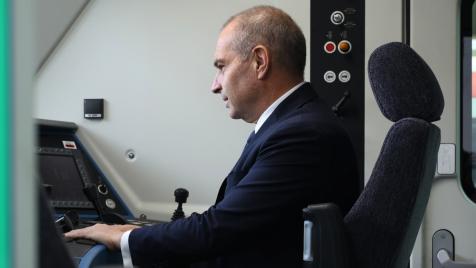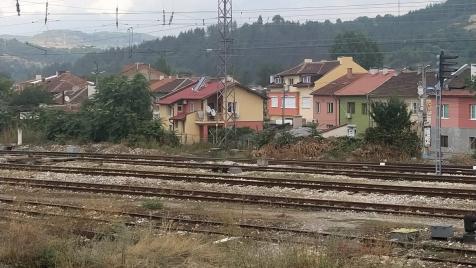Not just solar: Bulgaria must also look at other renewable energy sources
Batteries have potential, but there’s a need to plan for systems for storing industrial quantities of energy

© ECONOMIC.BG / Economic.bg
Bulgaria should focus on the development of all types of renewable energy, not just solar, which is currently the trend. This is the consensus reached by the participants at a panel on the role of renewables, part of the conference "Energy security - a basis for the development of European industry", organized by MEP Tsvetelina Penkova in Brussels.
Not forgetting the wind
The rise of solar energy is happening not only in Bulgaria but also throughout Europe, overshadowing other types of green energy.
There is no doubt that citizens and businesses need energy security, but this can also be guaranteed by renewables. Solar, wind, and energy storage can be a source of basic, baseline energy," said Dries Eyck, Director of Public Policy at SolarPowerEurope.
The reason is that setting up solar power plants is currently the easiest, fastest and most profitable method.
The fact that there isn’t a mix between different types of green energy, however, creates a problem for grid operators and electricity distribution companies. This was the comment of Asen Hristov, the chairman of the Supervisory Board of Eurohold Bulgaria AD, owner of ERM-Zapad.
There must be a mix between the different types of energy. The danger is to have one type of renewable source that works only at a certain time but does not work at other times; it thus even weighs on the system and creates a problem. We have a problem when consumption is low," he explained.
According to him, battery technology is not that developed and if the different renewable sources are properly mixed, there will be a reduced need for batteries. Batteries also pollute and are not easily recycled.
This is a problem that needs to be placed on the map as fast as possible."
According to the executive director of the Electricity System Operator (ESO), Angelin Tsachev, we also need a well-balanced mix of renewable source capacities
We can't just rely on solar and wind, or solely on water or geothermal," he says.
The ESO director gave an example of countries like Norway, which do not have a range of opportunities. Bulgaria, on the other hand, is not like that and has a good potential for renewable energy production both from solar and wind, and these opportunities should be used.
In his words, however, we must ask ourselves the following questions: "Is the energy produced by renewable capacities sustainable? How can we connect it to our existing energy systems? How will it reach consumers? What part of it will they use?"
Valentina Uzunova, the president of the Chamber of Energy Auditors (CEE), also supports the idea that more than one type of renewable energy technology should be used and that there should be hybrid systems.
Batteries also need to be considered
However, the manufacturing sector says that businesses that operate 24/7 can hardly be powered by renewables and to ensure their continuous operation, there needs to be an energy basis.
Basic capacities in Bulgaria are sufficient, but the way ahead requires development in the direction of batteries - in any form", says Rumen Tsonev, CEO of Holding KCM 2000 AD.
According to him, the problem is that the EU does not pay attention to the possibility of storing electricity using lead-acid batteries, and only funds projects to develop batteries that do not have any metals produced in the bloc’s territory. In Bulgaria, for example, lead, zinc and copper are produced. (Lead is an essential component of lead-acid batteries).
Lead-acid batteries are the best type for energy storage because they are almost 100% recyclable," says Tsonev.
He gave an example of a new renewable sources program that was launched last week. In his words, unfortunately, not a single lead-acid battery will be included in its implementation because these are the current rules – the requirements give priority to lithium-ion batteries.
These are requirements that doom the development of an entire industry as a final product."
Of the EUR 215 million EU funding for the program, the Bulgarian economy will only absorb the funds paid to the people who will build these energy parks and nothing else, according to Tsonev.
According to Blagoy Burdin from the Institute of Electrochemistry and Energy Systems at the Bulgarian Academy of Sciences, both batteries and hydrogen have benefits, and we should not focus on a certain technology and rely only on it to do its job.
Batteries work up to a few hours, if we want more renewables in a seasonal aspect and on a terawatt-hour scale, the only viable solution is hydrogen," he believes.
Angelin Tsachev explained that in 2024 1000 MW of renewable source capacity will be added, and in 2025 another 800-1000 MW, but the question remains whether this energy will be consumed by the businesses or will come out as a surplus.
What’s left for us is to find a place to store the energy - batteries have the potential, but not for industrial amounts of electricity. Here, too, the state governments must take steps and greenlight the construction of such systems for storing industrial amounts of energy," concludes Tsachev.
Translated by Tzvetozar Vincent Iolov

 Aleksandra Sotirova-Delcheva
Aleksandra Sotirova-Delcheva 


